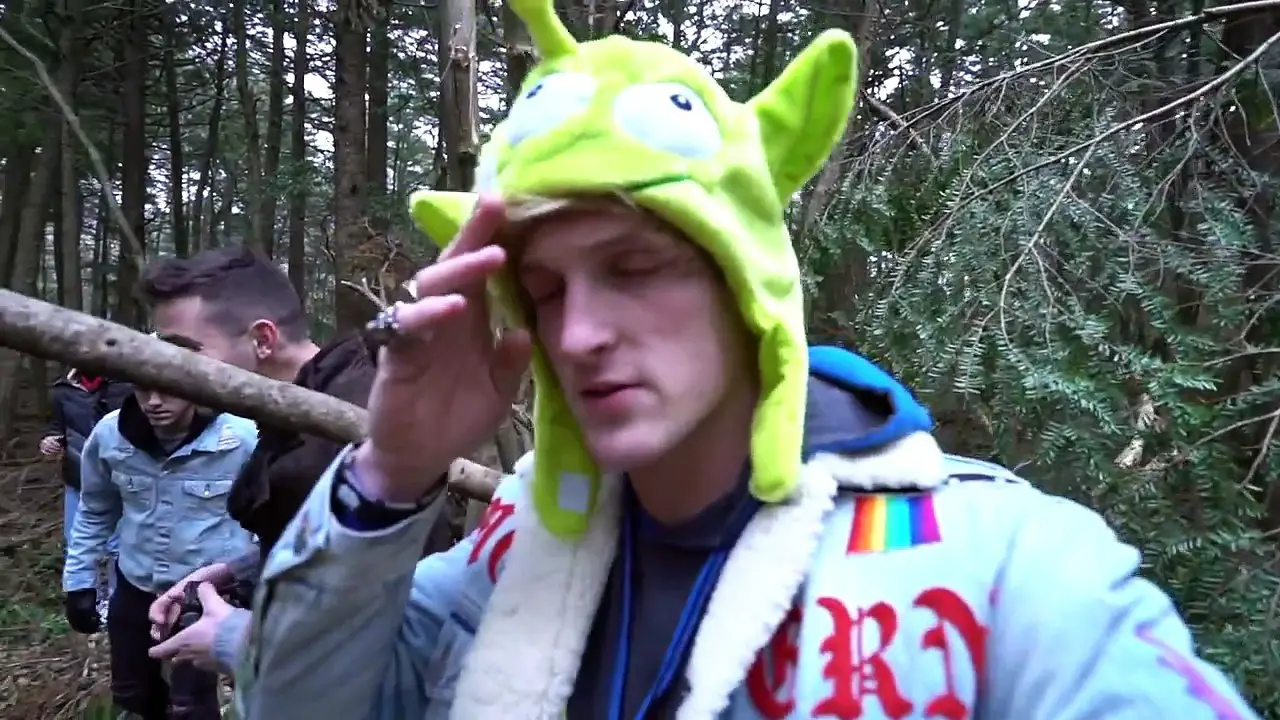So, 2018 is not Logan Paul’s year, or at least it doesn’t seem like it’ll be. Earlier this month, the news broke that the (in)famous vlogger had videotaped a dead body while visiting Japan’s “suicide forest,” thus creating the first scandal of the new year.
Immediately, twitter was on fire. The Logan Paul scandal was printed in bold letters across many forms of social media. News stations were reporting on it in between weather and sports updates. People, of all ages, took to the notorious comment section of his many social media platforms to make sure he relives his mistake on some type of hellish loop.
The aftermath of this Logan Paul scandal isn’t something we haven’t seen before. Yes, what Logan Paul did was horrific to say the very least.
Not only did he release a video of a dead body hanging from a tree in an apparent suicide, but shortly after, a video was released of the YouTube star completely disrespecting the people and culture of Japan. He then continued to issue a very half-assed, forced apology in typical young-Hollywood fashion.
In all honesty, Logan Paul could have just Googled “is it a bad idea to post a dead body on the Internet,” or looked at YouTube’s term and conditions, but instead he seemingly took a wild guess. So, needless to say, the upset is understandable at the very least.
But, the outrage is not the issue; it’s the way these “offenders” are handled after the dust settles. It seems that when a person, specifically a celebrity/well-known figure, does something that is utterly disgusting, a few people defend them and the rest tend to lash out, creating mass waves of hate directed at a single person.
This isn’t for the Harvey Weinstein’s and Woody Allen’s of the world who commit very real, violent crimes. Logan Paul falls into the category of an idiotic person who did an obnoxiously terrible thing but didn’t endanger anyone’s livelihood directly.
The problem with the backlash the Logan Paul scandal received was that it was mostly anything but effective. When responders attack, they don’t think to provide constructive criticism.
As a 22-year-old privileged, white male who reportedly gained followers from the incident, Logan Paul is probably ignoring a lot of the hate mail he’s getting. After a day or so of people cyber-yelling and CAPS LOCKING HIM TO DEATH, he’s probably let the rest of this conversation on unread.
People need to understand that what he did shows there is a problem. The only reason he thinks what he did was wrong — if he even does — was because he’s been told repeatedly it was wrong.
But, no one is telling him why it was wrong. Logan Paul can’t learn anything from the piles of hate he’s received except how to hide his material more effectively next time. When thousands of people jump on a single person without providing reasons why they’re jumping on them, or what can be done better next time, nothing gets fixed.
For anyone who has seen the incredible Black Mirror episode “Hated in a Nation” (#DeathToLoganPaul?), they know that attempting to destroy a person without using it as a teaching moment can have horrible consequences. As someone who is guilty of tweeting Kylie Jenner and Taylor Swift some incredibly pestiferous things, I understand it’s hard to not send the perpetrator a crafty 280-character (R.I.P 140-characters) rant of how terrible they are.
But, if what you’re sending them is nothing more than a tweet that could be featured on “Celebrities Read Mean Tweets Live with Jimmy Kimmel,” then maybe the comment should be reconsidered. Nothing good has ever come from exiling a person from society.
When we all come together to attack one person, it gives them more attention than they need, and allows for those who get a rush off having an unpopular opinion a reason to defend them. While it is important to have these sensitive conversations, and bring light to these unfortunate situations, it should be to prevent this from happening again, not feeding our desire to express anger.
These people’s actions are without a doubt a problem, but instead of reminding them how they’ve damaged the society we live in, we should be trying to resolve the situation and work towards making them functioning members of the community. This issue goes beyond the Logan Paul scandal.
This type of mob hatred has its consistencies. Every week someone new is put in the hot seat, and everyone attacks them until the next person messes up.
What we should understand is that these people have followings and money. Just because the community has banded together to blacklist them, doesn’t mean they instantly lose all their wealth and influence. They don’t magically understand why they were wrong.
In April 2014 when Donald Sterling, former NBA team owner, was caught on camera making racist remarks, his backlash didn’t cause him to be spontaneously cured of his racism. Sterling is probably still racist, and rich for that matter.
Furthermore, Logan Paul is probably still not sensitive to Japanese culture, and he probably isn’t interested in promoting suicide awareness, even though @GagaLover96 called him a repulsive prick 27 times. A possible resolution would be to allow ourselves to have our 10 minutes of angry ranting, and then sit down and ask the Donald Sterling’s (and Donald Trumps) of the world why they would make these statements. Maybe instead of tweeting at them 15 times a day, there could be like a 12-step program for reformed racists or a behavioral rehab for millennial vloggers who say the n-word or post dead bodies on YouTube.
Black Mirror has warned everyone that a bee to the skull is the only thing that comes from threatening tweets, and I, for one, trust Charlie Brooker. The next time someone slightly famous does or says something disastrous, stop and think how much will be accomplished by insults and death threats from thousands of people.
Give them a chance to learn from their mistakes and become better people. But, if there’s no remorse, then all is fair in tweets and hate.

















